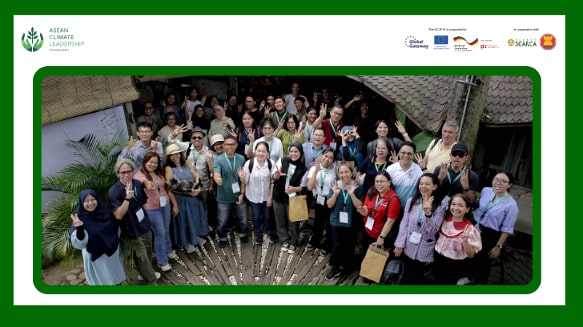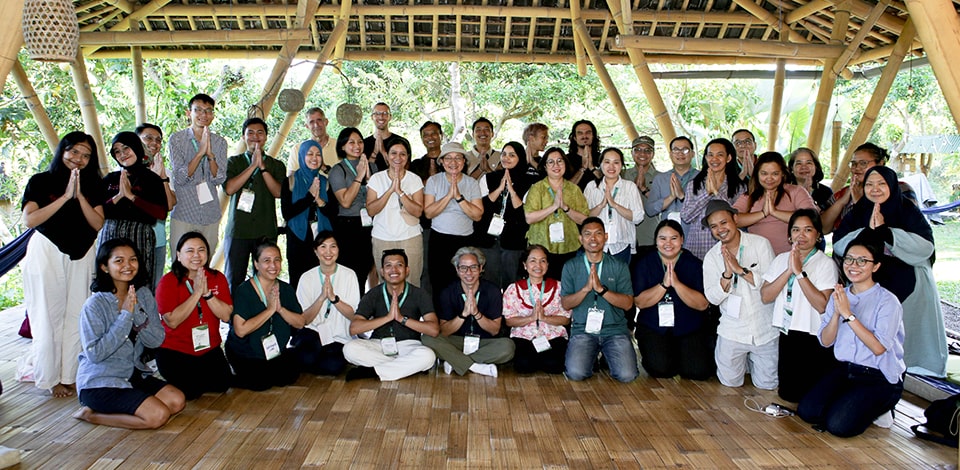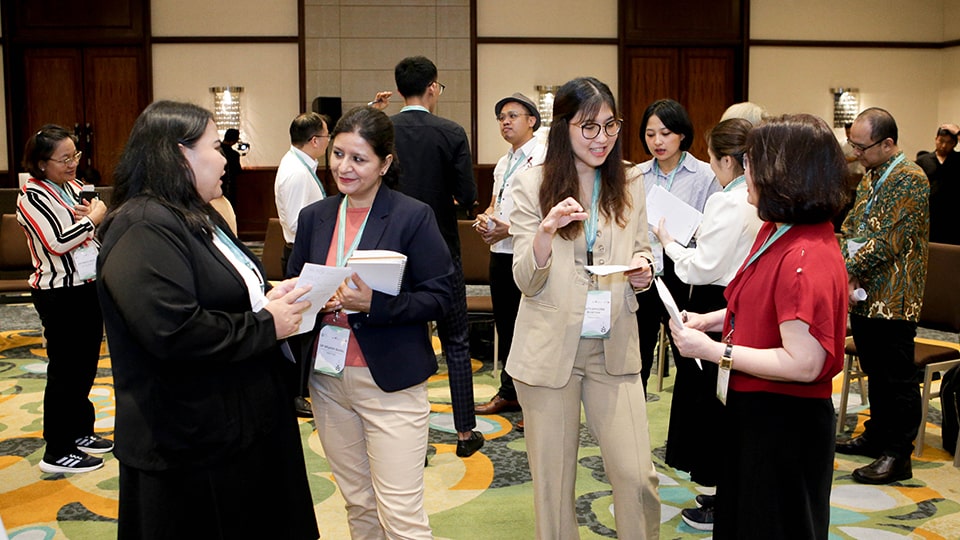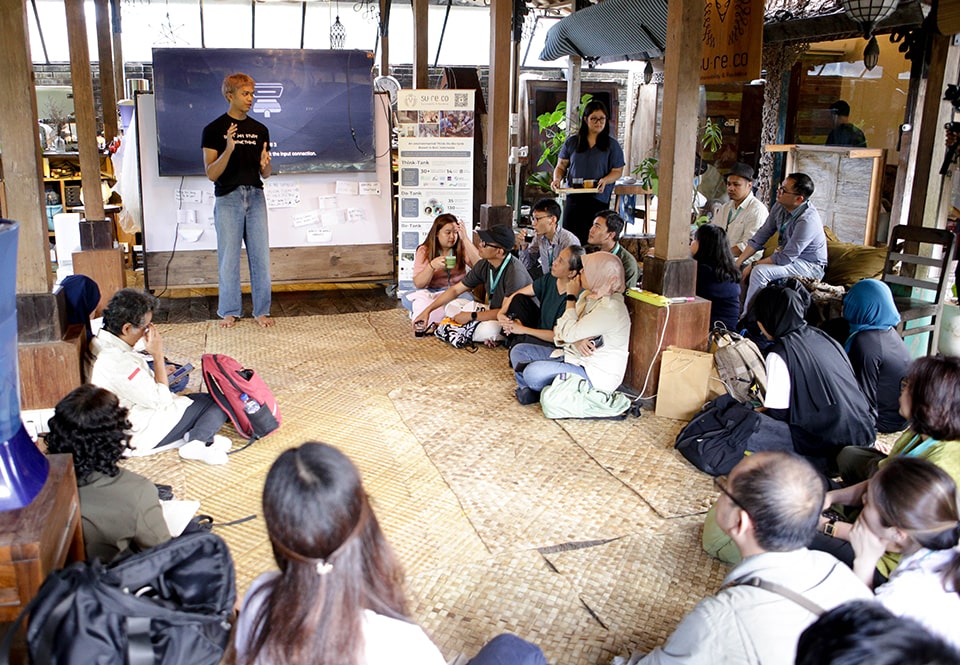
BALI, Indonesia – Leadership, communication, and transformational change anchored Module 4 of the ASEAN Climate Leadership Programme (ACLP) III, an intensive hybrid event held on 23-24 April 2025 that underscored experiential learning by blending on-site activities in Bali with virtual participation. This hybrid format is a first for ACLP since it began in 2020.
Module 4 covered personal leadership, stages of the Theory U and how it relates to the participants' personal change project, and introduction to the principles of risk communication.
In Bali, participants visited Sustainability & Resilience Co. (su-re.co) and the Jiwa Community Garden where they engaged with founders and community stakeholders. The tour showcased climate-smart agriculture (CSA) practices and the integration of Gender Equality and Social Inclusion (GESI) in community-based initiatives. The three-day Module 4 session covered topics on personal leadership, stages of the Theory U and how it relates to the participants' personal change project (PCP), and introduction to the principles of risk communication.
Leading self through reflection, listening, and mindfulness
"Leadership is influencing other people towards one goal" a participant remarked during the session.
Mr. Andre de Wit of the Leadership Academy Amsterdam expanded on it, emphasizing that leadership begins with oneself. From self-leadership emerges the ability to lead teams and organizations. Mr. de Wit explained that each stage builds on the previous one and involves different aspects of leadership.
Personal leadership requires the practice of self-reflection, listening, mindfulness, and staying focused on the present. These practices help in understanding an individual's purpose, values, and vision in life. To profoundly grasp the principles, participants engaged in interactive peer sharing on leadership styles, personal insights on their values and purpose, and the crafting of their leadership development plans.
Mr. de Wit emphasized that shaping their personal leadership plan and PCPs should be built upon one's personal purpose and vision. The importance of mindfulness, continuous learning, and creating a feedback culture was also emphasized.
Personal Change Project and Peer Learning
The ACLP III participants presented their individual PCPs, a capstone activity that showcased the application of their learnings from the program. Participants learned the techniques and types of feedback—constructive and appreciative—which they applied as they shared, listened, and provided comments on their co-participants' PCPs. The PCPs were thematically grouped, and a mentor was identified to guide the participants in shaping their project plans.
The groups and the assigned mentors were Dr. Dhanush Dinesh on climate and nutrition; Dr. Rex Victor Cruz on emission reduction; Ms. Imelda Bacudo on food system; and Dr. Srijani Baral on inclusive and gender-responsive policy development. Indeed, the participants appreciated the input given by both their mentors and peers in their respective group presentations.
Communication in the VUCA environment
Communication is inevitably part of leadership and implementing projects relevant to CSA and GESI, especially in the vulnerable, uncertain, complex, ambiguous (VUCA) environment evident in societies. Dr. Elaine Llarena discussed the foundational concepts and principles of risk communication, including its types and topics. She also discussed different message development strategies and shared principles on effective communication. In her discussion, she highlighted that risks may be socio-culturally constructed and that the creation of messages on risks should be clear, actionable, and include a 'call to action' for the audience.
CSA and GESI initiatives through community garden
The on-site participants had engaging interactions with the founder and CEO of su-re.co, Professor Dr. Takama, as he shared the beginnings of su-re.co through the fulfillment of the mantra "Don't just study but do something." This also established the organization's guiding principles of "think-do-be tank" in creating solutions for sustainable and eco-friendly initiatives that also support local communities.
A guided tour was also arranged with one of su-re.co's partners, the Jiwa Community Garden, where participants were met by its founders, Lennart "Lenny" Heitzhausen and Djuca Terenzi. The community garden tour featured the composting process and biogas design, permaculture garden, and the eco-friendly structures on the property.
The participants culminated the tour with engaging discussions with su-re.co's other community partners on agroforestry, youth, and gender.


